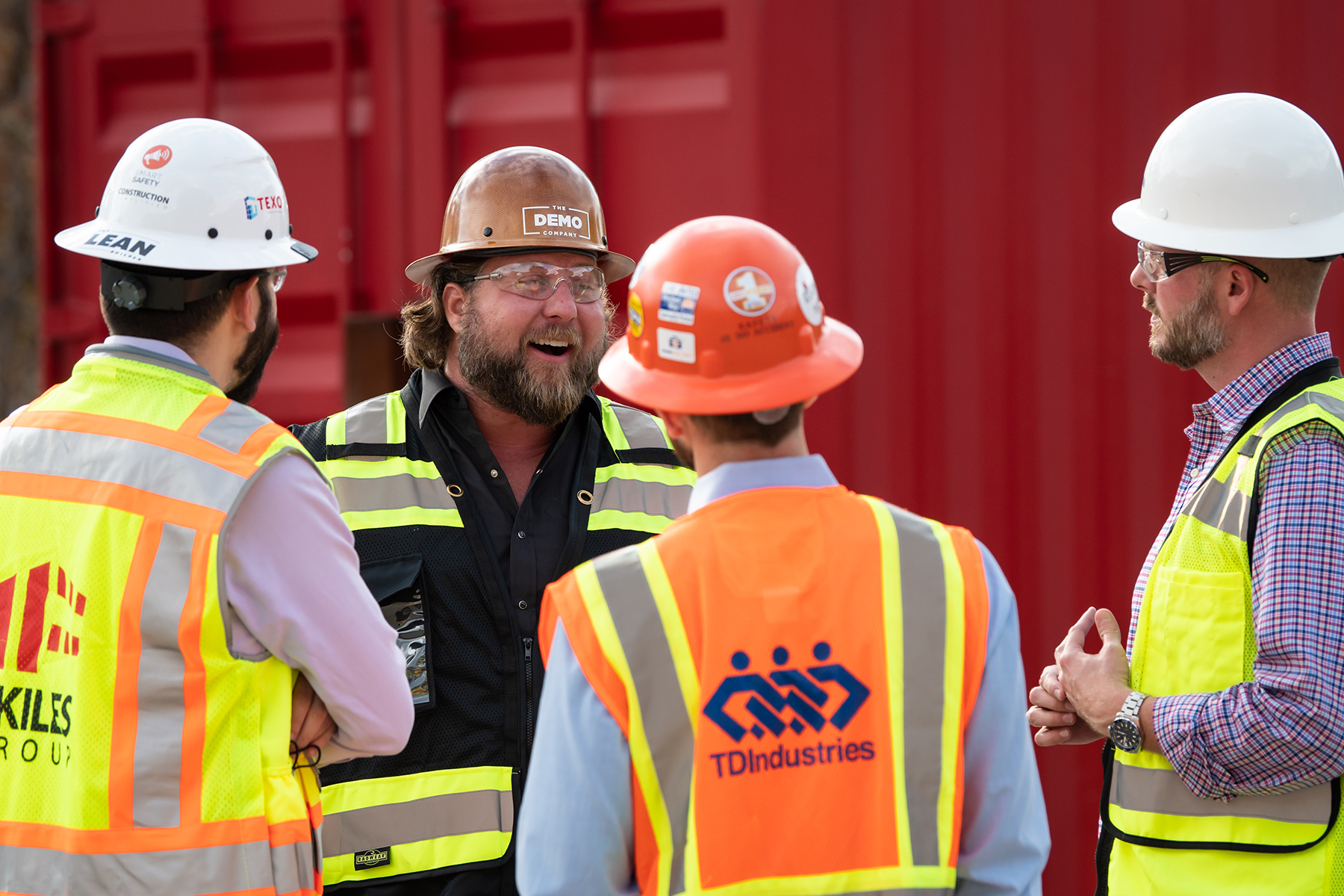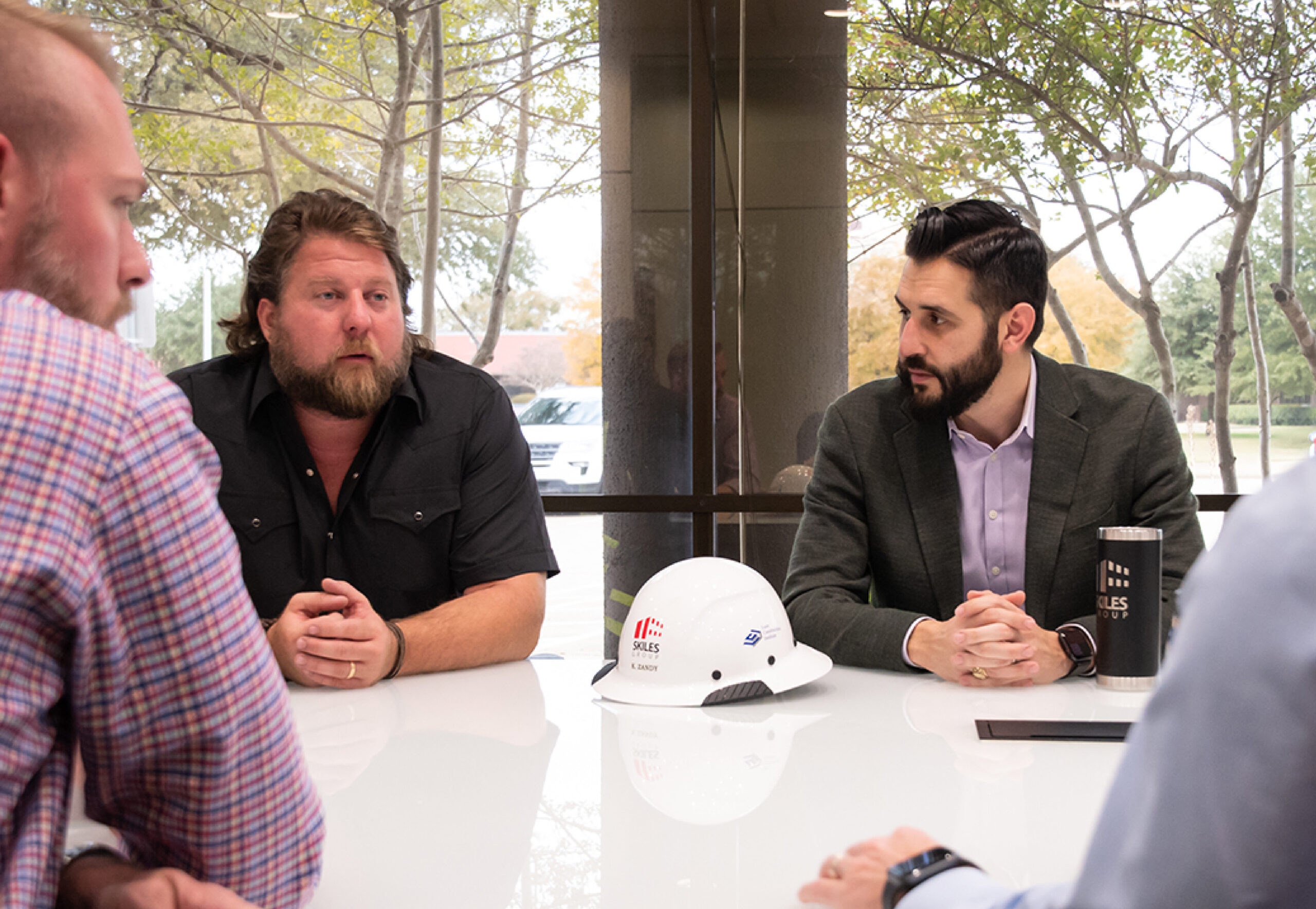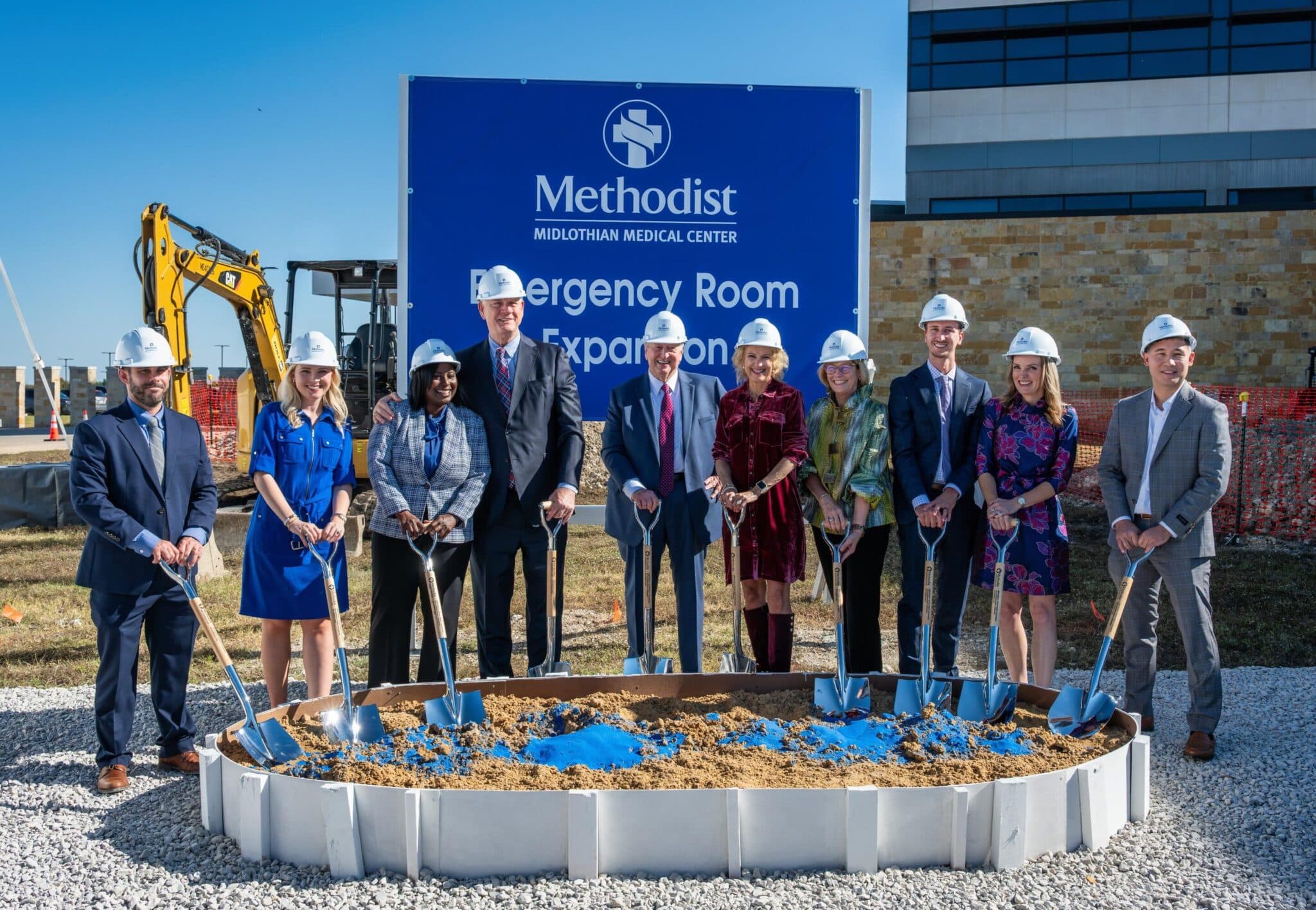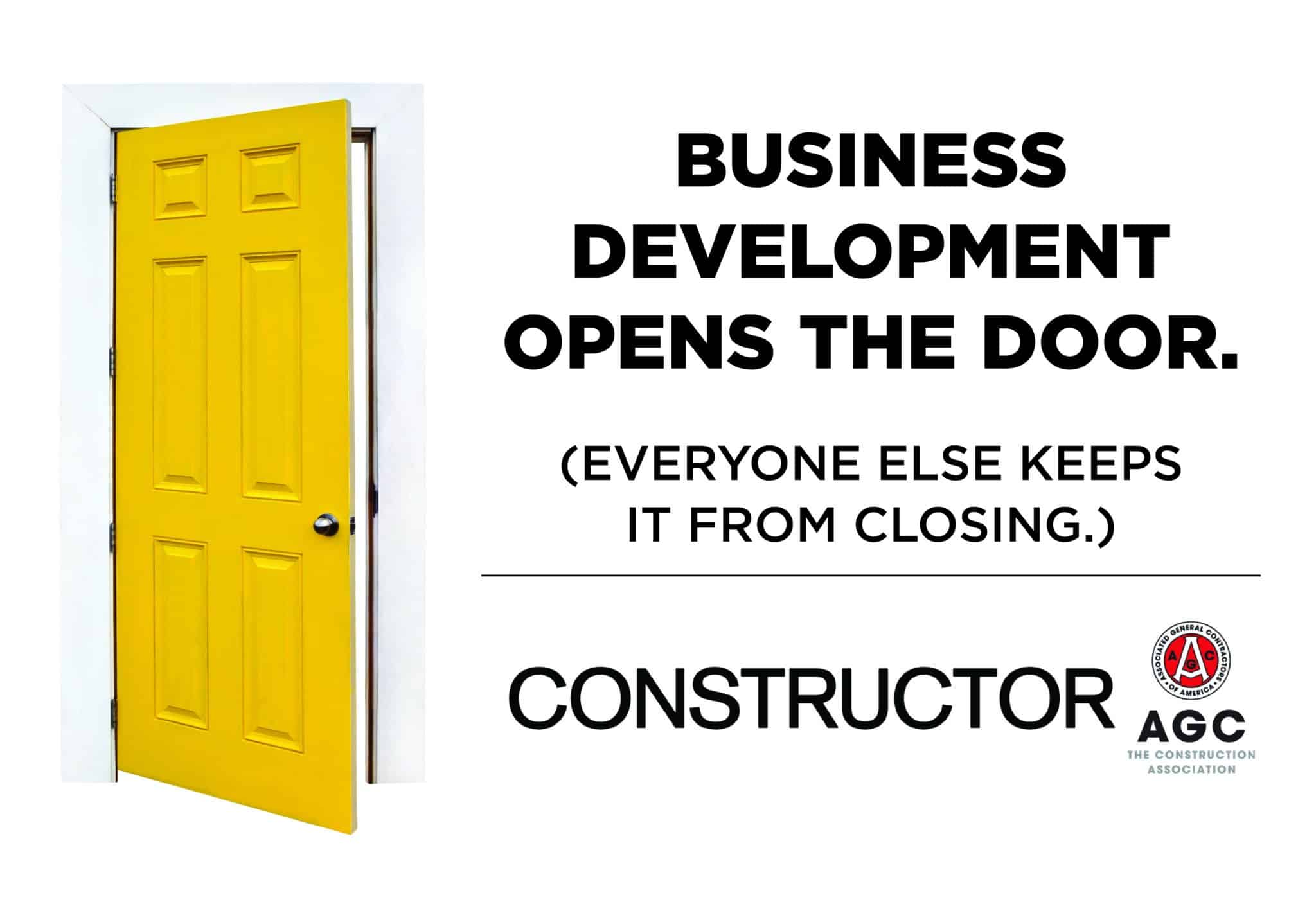The current condition of the construction industry is broken, by many accounts. Work is heavily commoditized and contractors are pushing themselves and their teams to do more with less—working faster, for less money, on increasingly complex projects. Skilled craftsmen are rarer, and the labor shortage is severely impacting productivity across the country.
If contractors want to attract new talent and bring more value to clients, the dynamic must change. One of the best places to start is in evolving relationships with the people who work in the field. The relationship between general contractors and subcontractors can be adversarial—yet they are reliant on each other to get the job done.
In this spirit, Keyan Zandy, COO of Skiles Group, sat down with four executives from companies that self-perform specialty construction work to discuss the importance of building strong partnerships: what it’s like to work with general contractors, what they wish was better understood about the business, and how they can better position themselves for shared success as they move together into a new era for construction.
The participants are Senior Vice President of TDIndustries David Fultz; Vice President of Business Development and Marketing for Baker Triangle Preston Pressley; Owner of The Demo Company David Boroughs; and Vice President of Operations for Osburn Contractors Kolby May. The latter two moved from the general contractor side to the subcontracting side of the business and offer unique perspectives.
LET’S START WITH THE ‘UGLY:’ WHAT ARE THE WORST CHARACTERISTICS OF GENERAL CONTRACTORS YOU’VE WORKED WITH?
May: Some superintendents are open to listening and some aren’t, right? So, it’s bad when they turn into a dictator: “You’re going to do it like I tell you because I’ve done this for 35 years.” Our guys have been doing this a long time, too—we sleep and breathe this. But they don’t listen if we try to explain something about what we’re doing, or want to hear our opinions if we think there might be a better way.
Boroughs: Yes! For example, they give us approved submittals and expect materials to be onsite two weeks later. That’s just not possible, but they still demand we meet the schedule; they yell, they write notice letters instead of talking to us, this sort of thing. And no matter whose fault it is, they tell us we have to eat it because, “per the contract blah blah.” It rolls downhill.
Fultz: It blows me away the number of times we’ve been told to proceed with scope changes and we end up not getting compensated for them. We’ve seen many general contractors default to driving the schedule and directing changes but failing to “go to bat” on a trade’s behalf with the owner. It’s easier to give the old, “By contract, we haven’t been paid and so you won’t be, either” excuse than it is to have an uncomfortable conversation with the owner. Our suppliers and subcontractors went above and beyond on their extra work, so we pay them even when we’re not, but we’re at a place in the hierarchy where we can be stuck absorbing the impact.
WHAT ELSE DO YOU WISH GENERAL CONTRACTORS UNDERSTOOD ABOUT THE TRADE SIDE OF THE BUSINESS?
Pressley: From the preconstruction side, why we might decline to bid on a project. We do it for two reasons: to protect ourselves and the general contractor. We watch our manpower projections closely, all the way out to a year and a half from now. We say “no” because we don’t have the resources to pursue the estimate or manage the work, or we know we’re not going to have the resources in the field to manage the job properly because of backlog.
May: And there are a lot of moving parts and pieces involved in keeping all these craftsmen busy every day. Things move fast on our side; we have 50 to 70 different-size jobs going simultaneously. Everyone has more than one project—nobody has just one job they’re working on. We rely on the general contractors to manage workflow and maintain our workers’ productivity.
Fultz: I wish general contractors could understand the labor risk we deal with, the amount of money that’s at risk in that, and everything that can impact us—jobsite conditions, work sequencing, timelines shifting and so on. We’re managing a lot of manpower and constantly leveling the work. It’s incredibly difficult to find qualified manpower in this market and when a job shifts two weeks, that cascading impact applies to our overall manpower in all our active projects. That domino effect is enormous. It’s a huge risk that we manage.
Boroughs: Great point. I can see how well a superintendent is running their jobs if I look at what I built into our cost for production and if we beat it or not. There are certain people whose work I’m more aggressive about pursuing because I know they’re going to run a good project—and that means either running it efficiently or being fair on change orders. That’s all I ask, is that a GC be fair, because we have very little, very limited control over how well we’ll do on a project. Our ability to be profitable is almost entirely in the hands of the general contractor and owner, and whether the project goes well.

WHAT’S AN EARLY INDICATOR THAT A PROJECT IS GOING TO GO WELL, OR, CONVERSELY, NOT GO WELL?
Boroughs: I can go to a kickoff meeting and tell you if we’re going to make money. If a general contractor has a strong team that’s organized, understands how to run the job and can share that vision with the trade partners, I know we’ll get in and out and do great. I can trust they’re going to make sure the trade before me is done and out of the way so I can in come there, be productive and get my work done, and get out of the way for the next guy.
May: A united team is key to a project’s success. You can tell if the project manager and the superintendent are on the same page, if that team is synced up. If the team is not united it’s going to split; some will go with project manager, some with the superintendent. It’s clear if a team is sharp and know what they’re talking about, or if they can’t even agree on what they’re doing.
Pressley: This is why we always try to figure out who’s on the project team—that’s one of the biggest decision drivers for us in our go/no go analysis. It can affect how aggressively we pursue a project. We find that teams, not companies, have drastic influence on our fee based on factors totally outside our control, like other trades they’ve selected, how they buy out the work, how they respond to challenges, and how they schedule and manage the construction process. We know where the landmines are in our markets, and we do our best to avoid them.
WHERE DO WE GO FROM HERE? HOW CAN GENERAL CONTRACTORS EARN TRADE CONTRACTORS’ TRUST AND BUILD STRONG PARTNERSHIPS WITH THEM? WHAT IS THE WAY FORWARD?
Pressley: Two things come to mind: One, I don’t think we focus enough on the importance of providing adequate time for design, planning and early collaboration, plan reviews and budgeting. More time usually means less stress and fewer manhours and dollars spent. It seems like we all understand that model, but we’re still pushed to meet unrealistic deadlines and construction schedules. We need to establish rational and realistic expectations early on with the owner/developer teams, so all stakeholders are set up for success. Two, we earn trust and move the needle for this industry with early involvement. MEP, structure, drywall, enclosures, glazing, demo, roofing—all these trades have important voices and should be part of the collaborative core team. This early input allows for problem-solving around scheduling, durations and manpower, and helps resolve design and constructibility issues before they turn into budget and field issues.
May: Think about how we allocate manpower—which ties back to schedules and if we’re part of the discussion around schedules—because we have guys all over the place, and it’s a big deal to pull people off one job and move them to another. I admit that, when I was on the general contractor side, my perspective was “I’ve got a job, I’ve got to get it done, I don’t care where you get your manpower.” But, if you’re talking about a true partnership, the general contractor has to have its ducks in a row and the schedule planned out, so it can get those guys when it needs them. I need the general contractor to respect the time it takes for me to maneuver and move people around and have them in the right places at the right times.
Boroughs: My answer is to communicate. Talk to us. If you have a problem, just pick up the phone and say, “Look, I’ve got an issue, what do I need to do?” and I’ll say, “All right, let’s figure out what we can do.” We can figure out a solution that solves your problem and works for us. Let’s have that level of trust and respect. On the flip side, when things go well, let us know! Take two minutes to call, text or send an email. When we get praise for someone, it goes around our office and we make a big deal out of it, and that guy feels so much pride.
Fultz: I hope general contractors will come to see us as their partners. We’re teamed up to deliver something together for the ultimate customer, which is really the end user. Collaboration is part of that—being able to have input because we each have a different expertise. We have to work to understand what each other does. Trust emerges as part of that. As we leverage that trust in the expertise that we offer, our teams can go build projects effectively. When all of that is present, then this becomes our approach: We’re partners on this project, and we’re going to find the best way to deliver value and an exceptional final product for the owner.
. . .
Read “Flipping the Script” on Construction Executive’s site: https://www.constructionexec.com/article/flipping-the-script-strong-partnerships-between-trades-and-general-contractors




